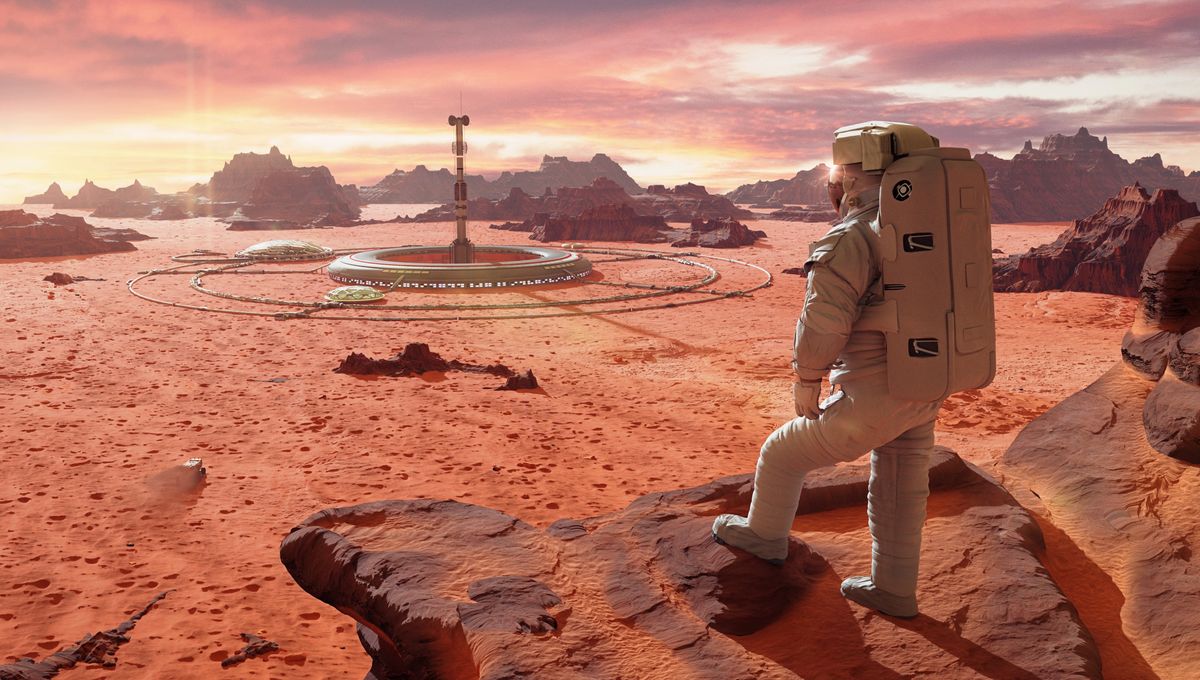
“Earth is the cradle of humanity, but one cannot live in a cradle forever,” Konstantin Tsiolkovsky, one of the founding fathers of rocket science, once said. Since the late 1950s, humanity has taken the first shaky steps into the cosmos. This century, there have always been humans living in orbit, and we expect this will continue for the foreseeable future. But can humanity settle space?
The question is a complex one. Is this big leap actually imminent? Is it feasible? Is it safe for the people going there and those staying here? We are lucky that two brilliant science communicators, Dr Kelly and Zach Weinersmith, undertook that task and turned it into a fantastically compelling book called A City on Mars, discussing the challenges and possibilities that humanity might experience in its potential expansion into space.
From the get-go, something that appears clear is the lack of extensive research on every subject related to the human experience in these future settlements. Despite promises by many advocating that living in space is imminent, there is a lot that we do not know.
“What I would invest in immediately would be what are called closed-loop ecologies. These are systems in which you essentially have a sealed container and you create an ecosystem in it,” Zach Weinersmith told IFLScience in an exclusive interview. “Basically a mini-Earth. We’ve only done it a few times. So far the maximum scale we’ve done is eight [people] and we don’t know how it scales.”
It is possible that keeping humans alive in these systems might be easier to manage for a large group but it might be also worse, and this is why more research is necessary. The largest test also did not include medical facilities, something that appears to be common with outer space research.
“The first big surprise for me was how little we know about space medicine that is relevant to life in a space settlement. Hundreds of astronauts have been to space aboard stations orbiting the Earth, and I assumed we had learned most of what we needed to know from these astronauts and the experiments they ran in orbit,” Dr Kelly Weinersmith told IFLScience.
“But the Earth’s magnetosphere protects these space stations and their inhabitants from space radiation, which wouldn’t be the case on Mars. So we don’t really understand the radiation risks. And while we know that life in freefall orbiting the Earth is bad for bones and muscles, we don’t know if life in Mars’ 40 percent gravity will completely alleviate those problems or not. And of course, Mars has other problems as well, like toxic regolith that is kicked up in worldwide dust storms…”
Challenges exist not just on Mars, but even on the much nearer Moon. Settlements there will have to contend with the lack of a crucial element: carbon. There are currently six caches of high-density carbon on the Moon – the bags of feces, urine, and vomit that the Apollo astronauts left there. But if we want to have agriculture to sustain a settlement, carbon is needed.
“You can’t just make more carbon on site. It’s made in stars, so this is a problem,” Zach explained. “People will often talk about how much water is on the Moon. And there is not that much water. It is a finite resource, and the rules say whoever gets it first can probably take it”
The book explains also the uncertainty of the legal framework that currently regulates space exploration and how it would regulate space settlements unless it’s updated. It leaves a lot to be desired, if we want to avoid the next step forward becoming a step backward in terms of human rights and the risk of war.
“It was extremely unsettling to read space settlement advocates argue that we may need to adjust our threshold for what we consider valuable human life. Their argument is that early Mars settlements will require incredible time and energy investments, and these communities simply won’t have the bandwidth to support people with disabilities,” Kelly explained.
“If we slow down and settle space carefully, we should be able to go with a plan for how we can support and value all the settlers. One of the main motivations for moving to Mars is that humanity needs a ‘Plan B’ in case something catastrophic happens to the Earth. I would hate to see humanity’s back-up be one that loses so much ground on the progress we’ve made regarding human rights.”
The challenges are certainly great. Greater than many advocates would like for sure, but wishing them away won’t fix the need to have solid research and frameworks for the future of settlements in space. After all, to quote JFK, we do these things “not because they are easy, but because they are hard”.
“There is a path forward and most of the stuff we need to do to get there is stuff we ought to do anyway. It’s also incidentally just really cool stuff,” Zach enthusiastically explained. “There is so much science to be done; on closed-loop ecology, on space obstetrics.., like imagine telling someone you are in that field, that’s amazing!”
“In international law, we need to create a planet where war is less probable, terrorism less likely to do space. And it would be a good thing to have in general.”
You can read more about A City On Mars in the latest issue of CURIOUS, featuring an excerpt and a Q&A with the authors. You can watch the whole interview with Zach here.
Source Link: Can We Settle Space Anytime Soon?